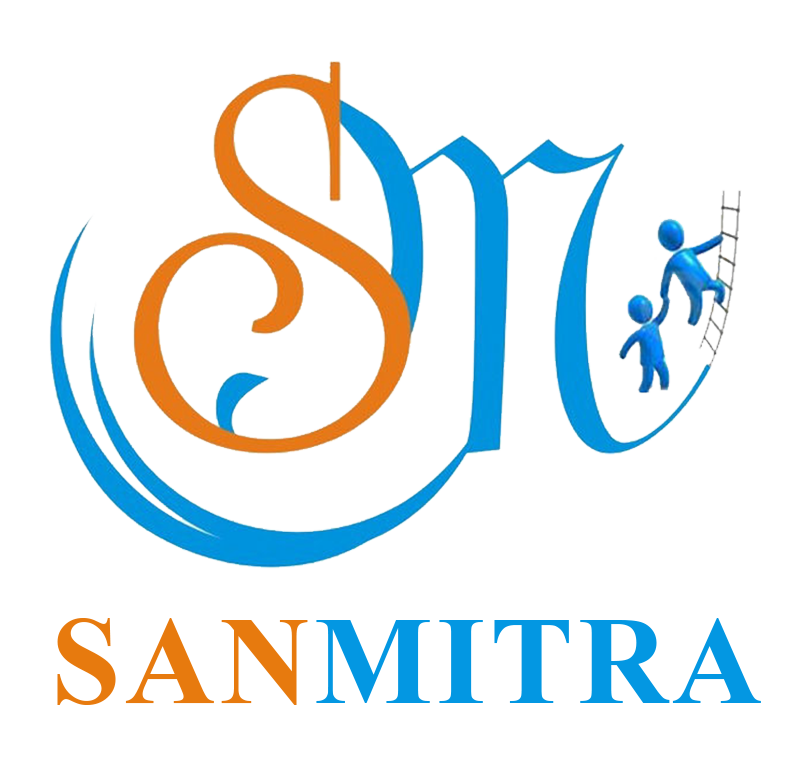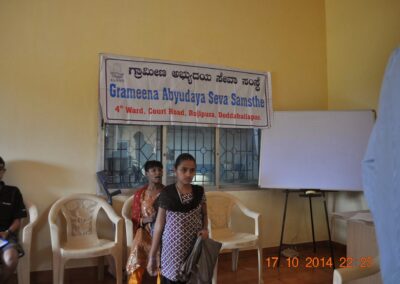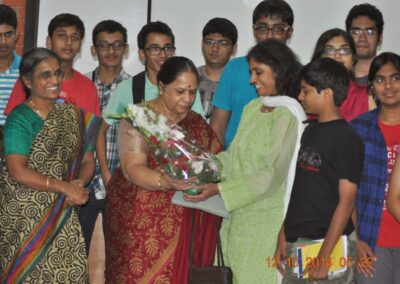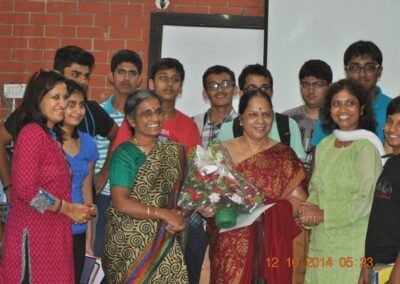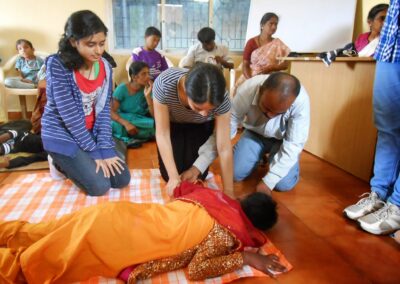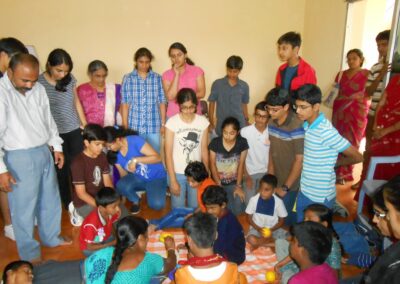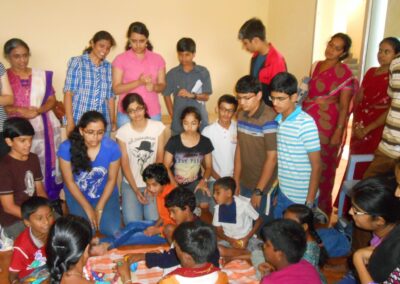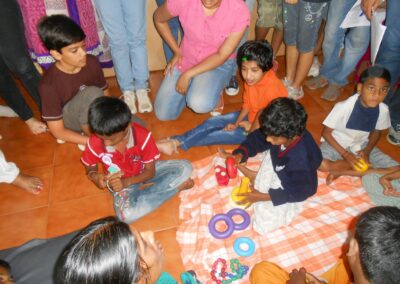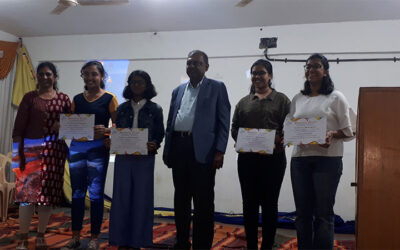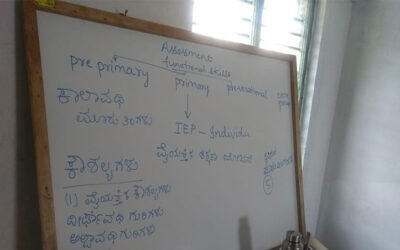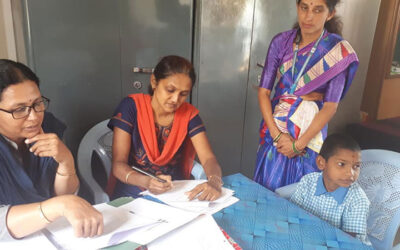Health Initiatives
Know MoreCerebral Palsy
There are various types of CP. The major concern here is that the causes vary but there seems to be no cure for it. It was found that the ratio of Cerebral Palsy kids in our country is 2.5:1000. The people from rural areas need assistance not only in diagnosis, prevention and treatment, but also funds.
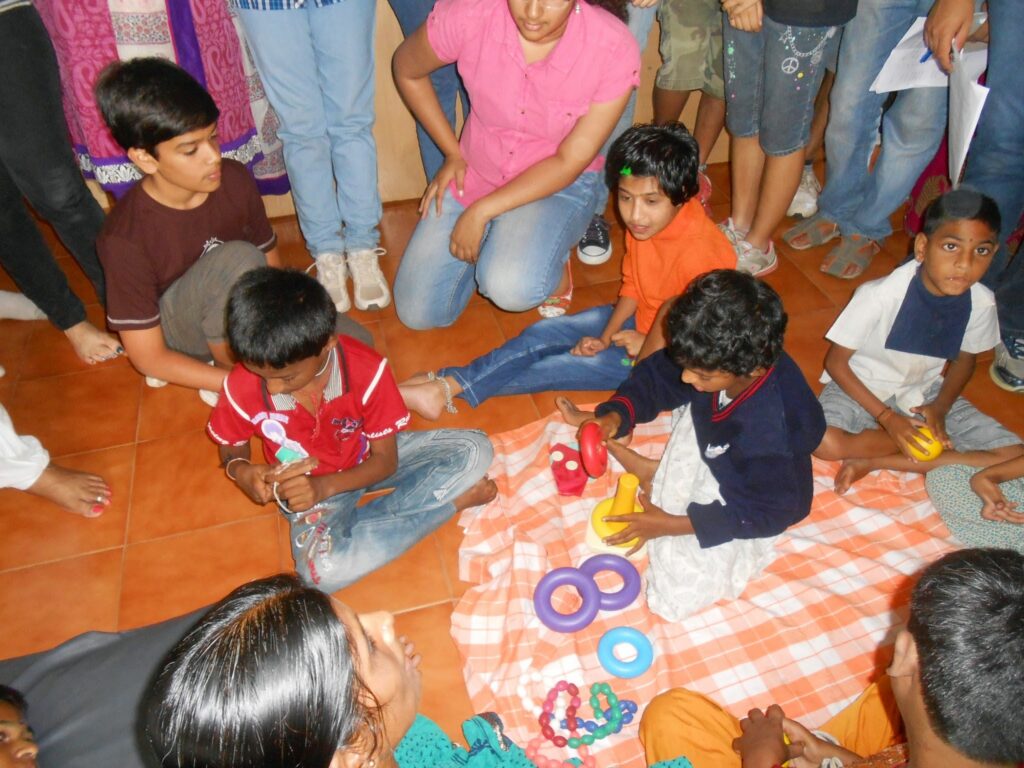
Our Work towards Prevention of Cerebral Palsy
This video aims to demonstrate what a to-be mother to do before the pregnancy and during the pregnancy and till the birth of the child.
This video aims to demonstrate the care to be taken for a child just after the first breath of the baby till it turns 5 years.
This video aims to educate the people on dos and don’ts of a child with Cerebral Palsy condition.
Skill Development
( Have assessed 75 kids)
Physiotherapy is often the first step in treating cerebral palsy. It can help improve motor skills and can prevent movement problems from getting worse over time. Physiotherapy can help relieve pain, muscle stiffness, and improve overall mobility. It can also prevent future health problems like tightened muscles.
Physiotherapy implements strength and flexibility exercises, heat treatment, massages and special equipment to give children with cerebral palsy more independence. The extent to which physiotherapy helps depends on the severity and type of each case of cerebral palsy.
Children with milder cases of CP may only require some physiotherapy to treat their condition. In more severe cases, it may be used alongside other treatments or medications. Beginning physiotherapy as early as possible usually gives children the best chances at improvement.
Progress of each kid’s development shall be periodically monitored. Skill development training covers how different groups of children are formed- pre primary, primary, pre-vocational etc. Also Reading and understanding IEP, setting long term and short term and weekly goals for learning shall be given to the care takers.
This will be followed by a guidance to teachers and care givers to implement individual education plan. Progress of each kid’s development shall be periodically monitored.
Guidance shall be provided in setting the class room time table, using resources, activity management. Assignments are given and follow-up will be done for a month and further mile stones shall be set for further growth.
World Cerebral Palsy Day – 6th October 2017 @ All India Institute of Speech and Hearing (AIISH)
World Cerebral Palsy Day – 6th October 2017 @ All India Institute of Speech and Hearing (AIISH)
“Citizen’s Corner” at the Kere Habba, on the 8th January, 2017.
“Citizen’s Corner” at the Kere Habba, on the 8th January, 2017.
Awareness workshops Conducted at Schools, Colleges and Anganawadis: Educated 2000+ People
Awareness workshops Conducted at Schools, Colleges and Anganawadis: Educated 2000+ People
We conducted interviews and realized that mal nutrition during pregnancy, no proper neonatal care in rural health centers, less awareness of villagers about the wellbeing of an expectant mother, not visiting doctors during their pre natal care, and most importantly marriages in blood relation, early marriage and early motherhood are major causes for giving birth to a cerebral palsy affected kids. The purpose of the visit also included bringing awareness to families for remedial aspects of cerebral palsy.
Prevention of Cerebral Palsy in India – Doordarshan Broadcast: 23rd October 2013
Prevention of Cerebral Palsy in India – Doordarshan Broadcast: 23rd October 2013
Recent Blogs
Congratulations to our Interns – 2019
Congratulations to our Internees – 2019 who did a stupendous job on bringing the awareness on Prevention Of Cerebral Palsy.
Completed training the Staff of AVS Rehabilitation center
Happy to say that completed training the Staff of AVS Rehabilitation center with the support of NELE, a center for learning and spkilling the skater way.
Mile stone of Sanmitra achieved.
One more mile stone of Sanmitra achieved. As part of Secondary prevention of Cerebral Palsy, Sanmitra Trust with the support of NELE, a center for early learning
Covid relief
As the second wave of the pandemic hit, we initiated a Covid Relief campaign to raise funds for serving hospitals.
